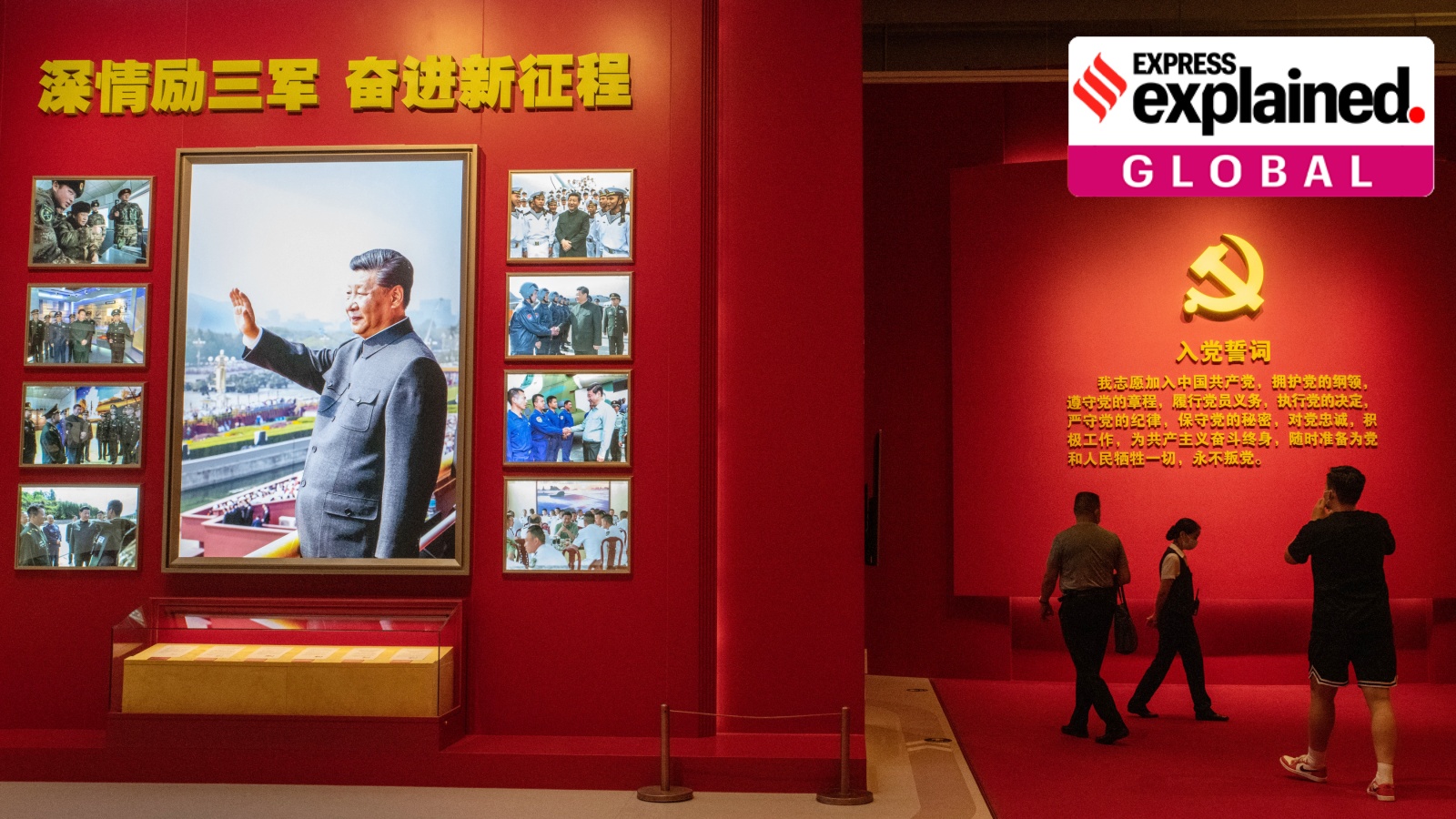A member of China’s all-important Central Military Commission (CMC) was announced suspended from duty pending an investigation on Thursday (November 28), marking the latest major shake-up in its defence establishment in recent months.
A Chinese defence spokesperson said Admiral Miao Hua, 69, was suspected of “serious violations of discipline”. The phrase has previously been used for corruption-related charges against government officials, although there is no confirmation of the allegations against Miao.

Just this week, the Financial Times also reported that China put its defence minister Dong Jun under investigation over a corruption-related scandal, citing current and former US officials. While China denied the report, Dong’s predecessor Li Shangfu was removed from office in October 2023, after only seven months at the post.
Incidentally, Li had replaced Wei Fenghe as defence minister and in June 2024, both Li and Wei were expelled from the Communist Party of China (CPC) on corruption charges.
Here is a look at the suspensions and how analysts have interpreted them.
Who is Miao Hua?
Admiral Miao is a part of the Central Military Commission (CMC), the most powerful military body in the country. It is described as taking charge of the “overall administration of China’s armed forces.” Former Defence Minister Li Shangfu was also a part of the seven-member commission, before his removal in 2023.
In the Chinese political system, the Communist Party is the central body around which bureaucracy and politics are organised. Therefore, party posts are more important indicators of an individual’s power than government designations.
Story continues below this ad
Miao is also the director of the political work department of the CMC, tasked with handling party ideology and personnel changes. Officially, the department engages in party-building, describing it as the “foundation and cornerstone of the Chinese military” In that regard, Miao outranks the current defence minister, who is not a member of the CMC.
South China Morning Post reported that Miao’s suspension “has left the seven-member CMC, chaired by President Xi Jinping, with a rare double vacancy and only two serving members apart from Xi and the two vice-chairmen – a situation not seen in decades.”
Who were the major suspensions before Miao?
In September 2023, reports of then Defence Minister Li Shangfu’s removal from the post began circulating, following his absence from public view for a few weeks. In the same month, Xi Jinping also spoke about the need for “a high level of integrity and unity” within the military. Some commentators interpreted this as a message against officials believed to be corrupt.
Earlier in July 2023, it was made official that Xi had signed on the promotion of two rocket force commanders. Under the People’s Liberation Army (or PLA, the CPC’s armed forces), the rocket force commanders are in charge of land-based nuclear and conventional ballistic missiles. Wang Houbin and political commissar Xu Xisheng were made generals, which is the highest rank for officers in active service in China.
Story continues below this ad
However, the news omitted mention of the previous commanders of the force – General Liu Guangbin and General Li Yuchano. A week later, SCMP reported they were “purged” or forcibly removed as part of a new anti-corruption drive. Later that year, nine PLA generals were also removed from the country’s legislative body.
Similarly, former Defence Minister Wei Fenghe was accused of “seriously violating political and organizational discipline by helping others gain improper benefits in personnel arrangements,” according to state media agency Xinhua.
What could these recent changes mean?
Since he first became China’s President in 2013, Xi has purged senior officials under corruption charges. Critics argue that these charges have been framed at times to replace officials with people more favourable to him and centralise power in his favour. Xi’s ability to purge officials with ease, in one way, proves his total control over the system.
On the other hand, many of those purged – including Miao and Li – were seen as close to Xi.
Story continues below this ad
China security scholar James Char, at Singapore’s S Rajaratnam School of International Studies, told the Associated Press of Miao’s removal, “Clearly, Xi Jinping’s trust in yet another of his uniformed subordinates has been misplaced” and that “If Miao Hua is eventually found guilty, the CMC Chairman (Xi) himself probably failed to size up the extent of corruption among China’s military elites.”
Christopher Johnson, a former top CIA China analyst echoed this in a comment to the FT, on the investigation against Defence Minister Dong. “Xi bucked tradition in 2018 by naming Wei [Fenghe], from the PLA Rocket Forces, to the post [of Defence Minister] instead of an army general. With Dong, a navy man, Xi’s military personnel dons assured him the vetting was airtight after a four-month search,” said Johnson. “So Xi is left to wonder, what corner of the PLA is not corrupt?”
Additionally, China is also witnessing a period of slowed economic growth. Its relations with the West and many of its neighbours – including India – have deteriorated in recent years over trade imbalances and increasing military assertions. In this light, the quick removal of senior military officials, including Xi’s loyalists, could further impact China’s impression globally.








































